Meet our Champions
Society Champions help raise the profile of the Microbiology Society in their local area. They do this by initiating activities and events of their own, or participating in Society-led events.
Find out more about the Champion(s) in your local area.
UNITED KINGDOM & REPUBLIC OF IRELAND
England
-
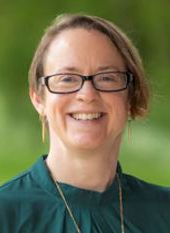
Anne Bishop (Wellcome Sanger Institute, UK)
I am a Post-doctoral Research Fellow at the Wellcome Sanger Institute, Cambridge, but I live in Nottingham and am keen to work with people in both regions. My expertise is in diarrhoea! Specifically Gram-negative faecal-orally-transmitted bacterial pathogens. I am passionate about public engagement around AMR, vaccines and hygiene and inspiring people to consider STEM careers. Being a Microbiology Society Champion links me with other researchers keen to engage with their community and helps me to promote this brilliant Society.
-
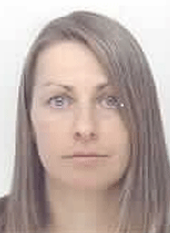
Caray Walker (Anglia Ruskin University, UK)
My research interests are in transmission of antimicrobial resistant zoonotic bacteria and vaccine development. I am the outreach coordinator for the biomedical sciences course group at Anglia Ruskin University, where I am involved in engagement activities with local schools and at science festivals. Through these activities I apply my knowledge to help younger audiences understand AMR and the importance of antimicrobial stewardship.
-
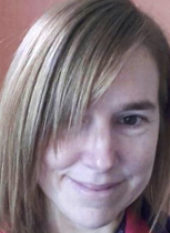
Lisa Crossman (University of East Anglia, UK)
I am an enthusiastic microbiologist and bioinformatician working at the intersection of genomics, bioinformatics and machine learning! Previously based at Wellcome Trust Sanger Institute, Cambridge on pathogen genomics and prior to that in the labs on the Norwich Research Park, I’ve been able to experience both environmental and clinical microbiology. Now freelancing, I use scripting, programming and cutting-edge AI methods to study genomes and metagenomes. Beyond research, I enjoy running outreach projects such as coding with the Raspberry Pi!
-
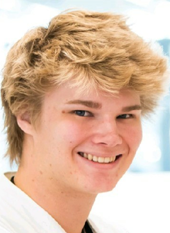
Luke Mitchell (Quadram Institute, UK)
My research aim is to evaluate the impact of manipulating the gut microbiota on the development and progression of pancreatic ductal adenocarcinoma (PDAC). I am particularly interested in how these manipulations influence the immune response in both the primary tumour and metastatic sites. I chose to be a Champion to help spread awareness of the Society and of microbiology, in particular probiotics and their interaction with the immune system and food.
-
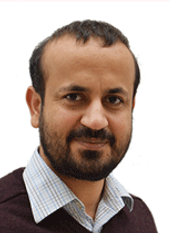
Muhammad Yasir (Quadram Institute, UK)
I am working as a Research Scientist at the Quadram Institute in Norwich, UK. My interest lies in bacterial genomics, particularly functional genomics. Additionally, I am passionate about science communication, as exemplified by my 'Audio Paper Science Sound Bite' series. Being a Microbiology Society Champion allows me to assist the community and it aligns well with my outreach work. It also connects me with other researchers who are equally passionate about their science and enriching the community.
-
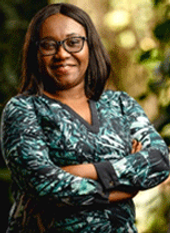
Blessing Oyedemi (Middlesex University, UK)
I am a research microbiologist and also teach undergraduate and postgraduate modules. I gained my PhD from University College London's School of Pharmacy, my research centres on anti-infective strategies that target resistance mechanisms such as efflux, R-plasmid and biofilms in bacteria. This is an exciting time as I engage with the Society as a Champion to help unlock and express my potential, as well as contribute to the objectives of the Society. It is a great privilege to be part of a team that help promote the future of microbiology and I am committed to using my talents, knowledge and time to make an impact.
-
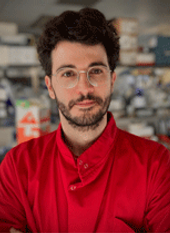
Daniel Gonçalves-Carneiro (Imperial College London, UK)
I am a fellow in the Department of Infectious Disease at Imperial College London, UK. In 2017, I was awarded my PhD from the University of Birmingham, UK, for my work on measles virus entry. I did my postdoctoral training at the Rockefeller University in New York, USA, where I studied how the zinc finger antiviral protein recognises viral RNA. I am currently investigating how viruses evade recognition by our immune system and how we can modify virus genomes to develop better vaccines for emerging diseases. As a Champion, I have been involved in the promotion of the LGBTQ+ community of the Microbiology Society.
-
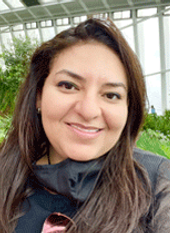
Enas Newire (Middlesex University, UK)
I am a molecular microbiologist focused on understanding and combatting AMR. My research activities focus on AMR emergence and dissemination through Horizontal Gene Transfer (HGT) amongst bacteria; particularly, bacterial evolutionary studies, bacterial plasmid transfer and fitness studies, CRISPR-Cas systems identification, anti-plasmid activity and bioinformatic analysis of bacterial genome sequences. I have led and co-led teams and activities supporting early career researchers, women microbiologists and research integrity.
-
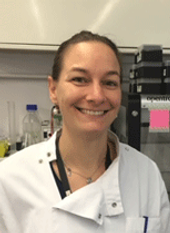
Linda Dekker (University College London, UK)
My current research involves engineering live biotherapeutic products that secrete bacteriocins. I have spent several years working as a microbiologist and have worked on a variety of environmental and medical microbiology projects ranging from 'investigating microbial mechanisms of uranium resistance' to 'programming diverse material properties into engineered bacterial cellulose'. I'm keen to share my knowledge and passion for microbiology and promote the awesome opportunities the Microbiology Society has to offer.
-
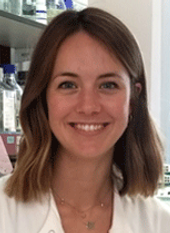
Lucy Thorne (Imperial College London, UK)
My research group focuses on how emerging viruses overcome our frontline immune defences. The Microbiology Society has helped me throughout my career from PhD student to group leader, through grants, prizes, brilliant conferences and building a supportive network in virology. I became a MicroSoc Champion to be able to share and promote these benefits to others and to meet Champions around the world. I promote the Society through regional cross-virology and bacteriology meetings and through my public engagement and outreach activities.
-
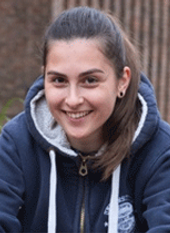
Lyuboslava Harkova (Brunel University London, UK)
I am a PhD student at Brunel University London working on better understanding regulation of bacterial biofilm formation. I am interested in everything bacteria-related and find biofilms absolutely fascinating! I enjoy outreach events and speaking to the general public about microbiology. Becoming a Champion gives me the opportunity to network with like-minded people who are passionate about disseminating our research to non-scientists.
-
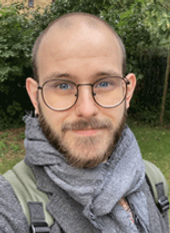
Ruben de Dios Barranco (Brunel University London, UK)
I am a Postdoctoral Research Fellow at Brunel University London. I obtained my PhD in Bacterial Gene Regulation at University Pablo de Olavide, Spain, during which time, I got my passion for dissecting the regulatory mechanisms of bacteria at the molecular level. Currently, my research goal is understanding the regulatory pathways that mediate biofilm formation and AMR in the priority pathogen Acinetobacter baumannii. I joined the Microbiology Society Champions Scheme to contribute to the exchange of microbiological knowledge and participate in activities that bring microbiology closer to the Society.
-
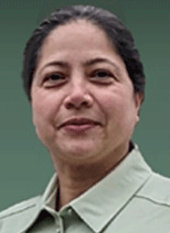
Vaishali Bhanushali (Synthomer PLC, UK)
I am an enthusiastic microbiologist working in industrial microbiology, with experience of working within pharmaceutical and chemical industry. I also have special interests in antimicrobial drug resistance and biocide resistance. I am very excited to be a part of the Champions Scheme, share my knowledge and passion for microbiology, and connect with peers to help promote the Microbiology Society and what it has to offer.
-
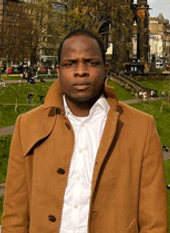
Victory Nnaemeka (Imperial College London, UK)
I hold a Master's degree in Applied Biosciences and Biotechnology from Imperial College London, UK, where I completed my dissertation on Mycobacterium abscessus metabolomics, characterising the impact of host-derived carbons on adenylate signalling in M. abscessus. I work as a technician for the Oxford Vaccine Group (OVG), facilitating ongoing clinical trials. I have a keen interest in promoting antimicrobial stewardship and vaccine equity, which led me to become a Society Champion, to advocate for antimicrobial stewardship and vaccine acceptance among disadvantaged communities.
-
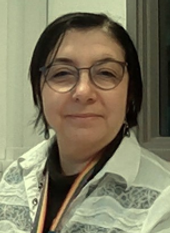
Marialuisa Crossatti (University of Leicester, UK)
I grew up and studied in Italy. I worked with Helicobacter pylori in Bologna, Nashville and New York, and with foot-and-mouth disease virus in Brescia. I also worked with a bunch of Gram-negative bacteria (e.g. Pseudomonas aeruginosa and Acinetobacter baumannii) and with mycobacteria including Bacillus Calmette-Guérinand and tuberculosis in Leicester. As a Champion, I want to spread the love and amazement for these life-forms.
-
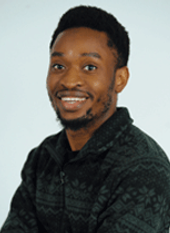
Oluwatosin Orababa (University of Warwick, UK)
I am a research microbiologist at the School of Life Sciences, University of Warwick, UK. My PhD research is based on the use of natural products to treat chronic microbial infections such as chronic wounds and cystic fibrosis lung infections. I became a Society Champion because I am interested in initiatives/outreach programmes that encourage future scientists to do science, especially in less-motivated areas within Nigeria.
-

Sudarshan Vishvani (Coventry University, UK)
I am interested in investigating the bioactive properties of novel plant species and innovating beneficial outputs for the community. Owing to my interests in microbiology and herbal technology, I am performing research studies and look forward to developing commercial products utilising my research findings as an efficacious Society Champion.
-
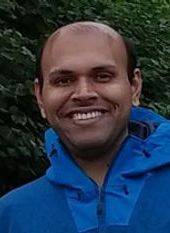
Bruno Silvester Lopes (Teesside University, UK)
I am interested in the molecular epidemiology, AMR and ecology of Gram-negative bacteria such as Campylobacter, Acinetobacter, Pseudomonas and Helicobacter. I collaborate with a diverse range of researchers to find evidence-based solutions for global challenges. I became a Microbiology Society Champion because I am a strong advocate of making microbiology accessible to people from all backgrounds and especially those in countries where resources are limited.
-
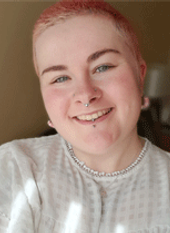
Charlotte Roughton (Newcastle University, UK)
I’m interested in the mechanisms that underpin virulence and antibiotic resistance in bacterial pathogens. During my PhD at Newcastle University, I researched the molecular mechanisms of sporulation in the superbug Clostridioides difficile. I enjoy getting involved in public engagement and outreach projects, and feel passionate about incorporating unique methods into the ways we communicate science. I’m looking forward to getting more involved with the Microbiology Society as a Champion, to forge new connections and continue sharing exciting science.
-
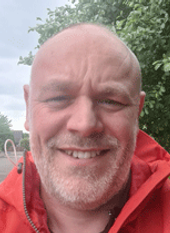
Douglas Fraser-Pitt (Keele University, UK)
I am a Senior Lecturer in Infectious Diseases at Keele University, UK, with a background in innate immunity to infection against respiratory pathogens. I have previously worked in industry developing novel therapeutics for infectious exacerbations of cystic fibrosis and community acquired pneumonia and I’m also an Honorary Lecturer with the University of Aberdee, UK. I wanted to join the Champions Scheme to give back to the Society and help raise awareness of microbiology and the work that we do.
-
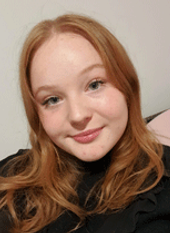
Eloise Nelson (Newcastle University, UK)
I'm an undergraduate MSc Biomedical Sciences student at Newcastle University, UK. My interests lie within AMR and fungi, which I'm very excited to share with my peers. I’m incredibly passionate about STEM outreach and education. Joining the Microbiology Society Champions Scheme will allow me to achieve this. I hope to spread awareness and engagement in microbiology with undergraduates, bridging the gap between students and the field!
-
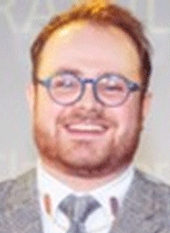
John Clark-Corrigall (Newcastle University, UK)
I am a final year PhD student at Newcastle University, UK, looking at interactions between pathogenic Salmonella and protective probiotic E.coli. I’ve worked on a plethora of topics from childhood cancer, muscular dystrophy and vaccines, before ending up on the gut microbiota. I’m passionate about science but particularly microbiology and sharing that with the public. I’m looking forward to getting stuck in as a Microbiology Society Champion to facilitate in providing great outreach events and career development within the Society.
-
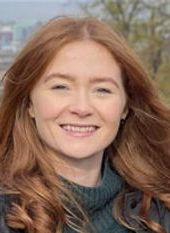
Aisling Brady (University of Liverpool, UK)
I am a postdoctoral research associate working at the University of Liverpool, UK. My research focuses on African Salmonella, particularly the genetics of invasive non-Typhoidal Salmonella (iNTS), a major causative agent of bloodstream infections across sub-Saharan Africa. I have always enjoyed taking part in public outreach events, so I am really keen to share my enthusiasm for microbiology and get involved in new events as a Microbiology Society Champion!
-
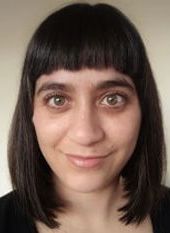
Blanca Perez-Sepulveda (University of Liverpool, UK)
I wanted to become a Champion because I strongly believe in the power of the Microbiology Society as a community. I am Molecular Microbiologist interested in how bacteria and phages interact and survive in their environments, using computational and molecular tools. I moved to the UK to complete a PhD at the University of Warwick, when I first joined the Society. I have seen the Society’s commitment to changing culture, which motivated me to get more involved.
-
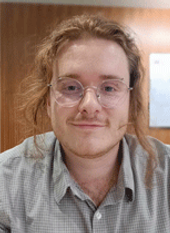
Keir Nicholas-Haizelden (University of Liverpool, UK)
I am a PhD student at the University of Liverpool, UK, investigating Staphylococcus epidermidis fitness in the human skin microbiome. Communicating our research to the general public and other scientists is a vital part of a scientist's job. The Microbiology Society has exposed me to a wealth of diverse microbiological research and the Champions Scheme seems like an excellent way to increase public awareness of microbiology and contribute back to the Society.
-
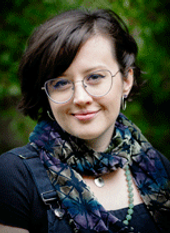
Rebee Penrice-Randal (University of Liverpool, UK)
I am a molecular virologist with a particular interest in RNA sequencing and bioinformatics. I conducted postdoctoral research in molecular virology and informatics in the Hiscox Laboratory, University of Liverpool, UK, where I also obtained my PhD. In 2022, I joined start-up company TopMD Precision Medicine, to utilise their expertise and knowledge in the field of precision medicine. I am passionate about facilitating conversations about LGBTQ+, neurodiversity and EDI in STEM.
-
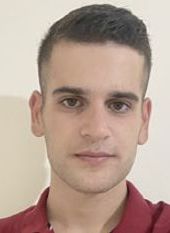
Chrysanthos Kleanthous (University of Reading, UK)
I am a postgraduate student at the University of Nottingham, UK, studying an MSc in Clinical and Molecular Microbiology. I am interested in pursuing a career in the gut microbiome and its influence on various intestinal diseases, including inflammatory bowel disease and colorectal cancer. Additionally, I am interested in science communication and inspiring the general public with scientific knowledge.
-
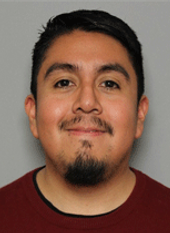
Daniel Yara (Medicines and Healthcare Products Regulatory Agency, UK)
I was awarded my PhD in 2021 from the University of East Anglia, UK, after investigating the interaction of the human gastrointestinal tract and outer membrane vesicles secreted by enterohaemorrhagic Escherichia coli. Since my PhD, I gained experience in various microbiological fields and am currently studying the serological response elicited by natural infection and vaccination. I have been a member of the Microbiology Society since 2017 and am keen to be involved in the promotion of both the Society and microbiology.
-
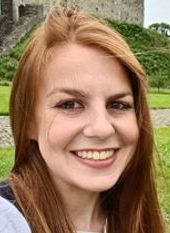
Kasia Parfitt (University of Oxford, UK)
I am an enthusiastic early career researcher with a passion for all things microbiology. I completed my PhD in late 2022 at Cardiff University, UK, investigating the population biology of the understudied cystic fibrosis lung pathogen Burkholderia multivorans, through next generation sequencing. During my studies and career, I have shown much interest in sharing microbiology with the wider community through public engagement opportunities and societies.
-
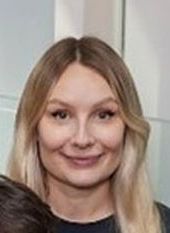
Rebecca Jeffery (University of Oxford, UK)
I am a postdoctoral researcher working on the role of the gut microbiome in inflammatory bowel disease. I really enjoy talking to others about how gut microbes play a role in human health, which has led me to do various outreach activities. I became a Society Champion to continue my public engagement projects, to talk to others about research underpinning our advancing understanding of the gut microbiome.
-
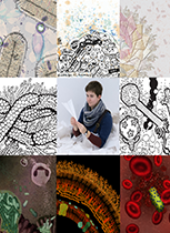
Eliza Wolfson (Freelance Scientific Illustrator, UK)
I am a Scientific Illustrator based in Bristol, UK, specialising in drawing the invisible world of microbes – from the architecture of their communities, their lifestyles and evolution, to their molecular regulation and responses. I designed the Microbiology Society’s Multicoloured Microbiomes colouring book, and as a Society Champion, I work with my local community arts trails and street exhibitions to spread the appeal of microbiology to a wider audience.
-
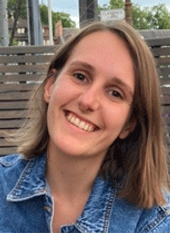
Natasha Turner (Defence Science and Technology Laboratory, UK)
I am currently a postdoctoral researcher working at Defence Science and Technology Laboratory, Porton Down. My research interest is in microbial genetics and gene expression in a variety of Gram-negative bacteria. I am a Microbiology Society Champion and look forward to engaging with the community, and sharing my enthusiasm for science.
© Crown Copyright 2024, Dstl
-

Ruth Maclaren (Sciencedipity, UK)
I am a Biomedical Scientist and teacher and founded the science outreach company, Devon Science (formerly Sciencedipity). The Devon Science team takes fun and hands-on science education to children, families and educators. I am passionate about getting kids hands-on with all areas of science from a young age, and am particularly keen on getting kids interactive with microbiology such as for The Eden Project and The Somerscience Festival, as well as her own events.
-
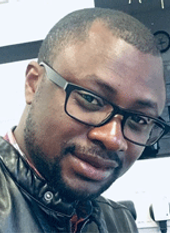
Eyinmisan Nikatsekpe (John Leggott College, UK)
I lead the Medical Bioscience degree programme at DN Colleges Group, with emphasis on microbiology. Engaging in science outreach programmes across the Yorkshire and Humber region, my goal is to offer captivating activities, fostering understanding and encouraging future scientists' participation. I look forward to collaborating with other Society Champions and actively participating in the Society's events.
-
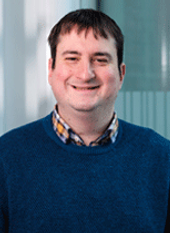
Georgios Efthimiou (Hull York Medical School, UK)
I finished my BSc (Hons) in Microbiology (Medical) and my PhD in Molecular Applied Microbiology at the University of Surrey, UK. I worked for three years as a Postdoctoral Associate at National and Kapodistrian University of Athens, Greece, studying the gene expression profiles of biofilm-forming bacteria on a variety of food products, by use of DNA microarrays. I also worked for four years as teaching fellow at Akmi Metropolitan College, Greece and the University of Strathclyde, UK, and am a Senior Fellow of the Higher Education Academy.
-
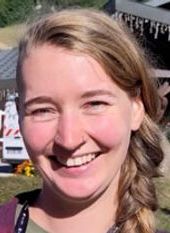
Kelly Capper-Parkin (Sheffield Hallam University, UK)
I am a Research Associate at Sheffield Hallam University, UK, where my main research interest is in novel antimicrobial coatings to prevent infection. Alongside my laboratory-based work, I am very keen on science communication, public engagement and outreach. I have been involved with a number of events within Sheffield and would like to broaden this further. I have also been a member of the Early Career Forum Executive Committee as the representative for the Building Communities committee of the Microbiology Society.
-
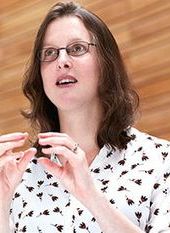
Mel Lacey (Sheffield Hallam University, UK)
I am an Associate Professor at Sheffield Hallam University, UK. Throughout my scientific career I have had a keen interest in public engagement and outreach, receiving my first public engagement grant in 2007, in the second year of my PhD. Currently, I am working with partner organisations across South Yorkshire to deliver impactful public engagement and widening participation events to a wide range of participants. My research interests, as well as public engagement and widening participation, span higher education pedagogy, production and delivery methods of novel anti-microbial agents and the impact of the microbiome on human health.
-
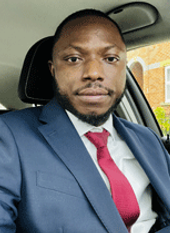
Raphael P. Galleh (University of Sheffield, UK)
I completed my PhD at the University of Sheffield, UK where my research focused on 'Testing for Novel Inhibitors of Oral Pathogens and their Enzymes' with the aim of abrogating host-pathogen interactions. I have been involved with the Society as an Early Career Forum representative for the Scientific Conferences Panel and an Editor for Microbiology Today. I am passionate about teaching, research and promoting microbiology. With my research interest in infection, inflammation and immunity (host-pathogen interactions), I am enthusiastic about drug development and the prevention of infectious diseases.
East Anglia
London
Midlands
North East
North West
South East
South West
Yorkshire
Northern Ireland
-
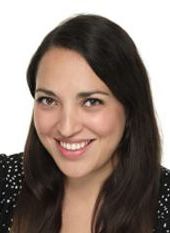
Julia Monjaras-Feria (Queen's University Belfast, UK)
I completed my PhD at the National Autonomous University of Mexico in collaboration with the Osaka University, Japan, in a fascinating project that introduced me to the bacterial secretion systems world. My path continued in the same field and I moved to Belfast, UK to become a Senior Research Fellow. Currently, at the Wellcome Wolfson Institute for Experimental Medicine at Queen's University Belfast, I am focused on elucidating the secretion mechanism and activity in eukaryotic cells of numerous bacterial toxins or effector proteins secreted by the T6SS.
-
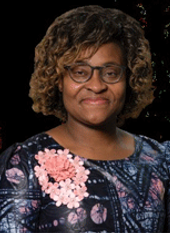
Linda Oyama (Queen's University Belfast, UK)
I am a microbiologist and lecturer at Queen’s University Belfast, UK. Being a Champion allows me to share my love for microbiology and actively achieve my desire to inspire and contribute to the education of young people. The Microbiology Society has played a pivotal role in my career, giving me access to a rich network of role models, collaborators and friends. For me, the Champions Scheme presents an excellent opportunity to show gratitude, give back to the Society and pay it forward.
-
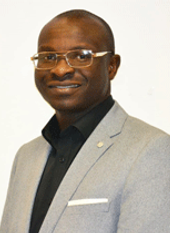
Omololu Fagunwa (Queen's University Belfast, UK)
I obtained a degree in Microbiology, masters in Biotechnology and a PhD in Applied Biological Sciences. My research interest broadly focus on microbiome dynamics, global health and tackling AMR. I also engage in citizen science and science communication in a faith setting. As a Champion, I am keen to support the Society's vision and harness microbiology to tackle global challenges.
Scotland
-
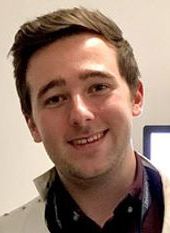
Liam Rooney (University of Strathclyde, UK)
I am a Postdoctoral Research Associate based at the University of Strathclyde, UK. My research focuses on the development and application of new optical microscopy methods to the field of microbiology. My interest in microbiology and imaging has resulted in a varied research background, ranging from bacterial motility and interactions to biofilm architecture and colonisation behaviours. My interdisciplinary research and involvement with the imaging community provide exciting cross-over opportunities for microbiologists interested in microscopy.
Wales
-
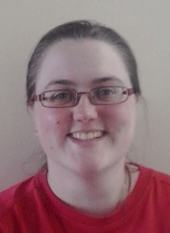
Claire Price (Swansea University, UK)
I became a Champion because I am passionate about scientific research and education. By promoting events, sharing knowledge and inspiring curiosity, I aim to bridge the gap between complex microbiological concepts and public awareness.
-
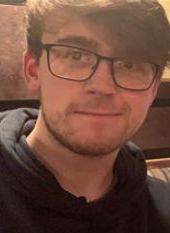
Dan Shelley (Cardiff University, UK)
I am a fluent Welsh speaker from North Wales but moved to study at Cardiff University, UK. I have experiences within the School of Biosciences Microbiomes, Microbes, and Informatics group and the Medical Microbiology Laboratory at the University Hospital of Wales too. I am set to follow a career in microbiology and to accomplish new challenges by studying bioinformatics. I became a Society Champion to help raise the awareness of microbiology and the threat of antimicrobial resistance but also to network with other microbiologists globally.
Republic of Ireland
-
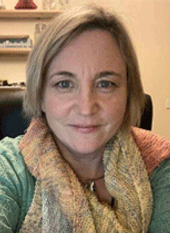
Bridget Kelly (Dundalk Institute of Technology, Republic of Ireland)
I lecture at the Department of Life and Health Science at Dundalk Institute of Technology, Republic of Ireland. I have a background in microbiology and science communication and am passionate about using creative ways to communicate and explore science in the world. I am involved with different projects exploring the importance of STEM, interdisciplinary projects around entrepreneurship as well as many different outreach initiatives. Being a Champion will enhance collaboration with similar individuals in the Society.
-
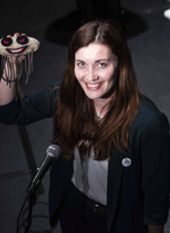
Luiza Wasiewska (University College Cork, Republic of Ireland)
My passion for microbiology started during my Master’s degree in food safety in the Netherlands and I especially loved bacteriophages. I then completed a PhD in development of biosensors (devices for rapid detection) for the detection of pathogenic E. coli and I am planning to continue working on rapid detection of pathogens. During my PhD, I loved doing outreach activities and when I heard about the Champion Scheme, I thought it was a great opportunity to get involved in public engagement.
-
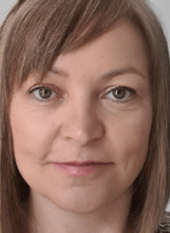
Orla Sherlock (Dundalk Institute of Technology, Republic of Ireland)
I am an energetic and passionate microbiology lecturer who delivers microbiology modules across various science, nursing, medical and veterinary programmes. Funding from the Society has enabled me to establish The Germ Lab, which delivers workshops, talks and Science Week events that promote microbiology and STEM to school students in our region. I am delighted to participate in the Champions Scheme, to give back to the Society for their support.
AFRICA
Benin
-
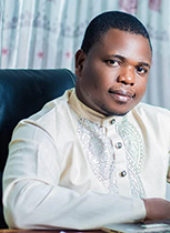
Philippe Sessou (University of Abomey-Calavi, Benin)
I am a PhD holder in Food Microbiology, Associate Professor and a lecturer and researcher at the University of Abomey-Calavi, Benin. My research focuses on microbial communities in food, in particular in milk and dairy products, as well as on zoonotic diseases such as COVID-19, rabies, tuberculosis and toxoplasmosis. I became a Champion to expand my network, share experiences with his colleagues, advance the microbiological sciences in all their dimensions, train young researchers throughout the world and particularly in Africa.
-
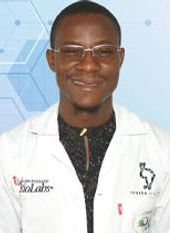
Victorien Dougnon (University of Abomey-Calavi, Benin)
I work as Senior Lecturer at the University of Abomey-Calavi, Benin. I am involved, through my work, in the fight against AMR in Africa. My interests are linked to molecular microbiology, hygiene and public health. Through a collaboration with The World Academy of Sciences (TWAS), I have initiated the establishment of an MSc programme in Molecular and Medical Microbiology. I am a founding member of the Research Unit in Applied Microbiology and Pharmacology of natural substances at the Research Laboratory in Applied Biology, University of Abomey-Calavi. Annually, more than 150 young scholars are impacted by this lab’s activities.
Ghana
-
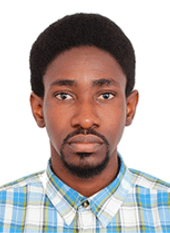
Joseph Acolatse (Cape Coast Teaching Hospital, Ghana)
I am deeply committed to advancing clinical microbiology, particularly in low-resource settings, where accurate diagnostics can significantly impact patient care outcomes. As a Microbiology Society Champion, I am proud to be part of a community of like-minded individuals dedicated to promoting the Society's vital work through advocacy and collaboration. My areas of interest are surveillance, molecular diagnostics and bacterial genetics.
Nigeria
-
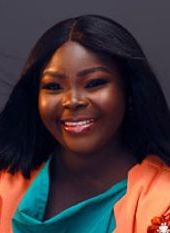
Adesoyin Aderanti (Solina Centre for International Development and Research, Nigeria)
I am a dedicated science communicator and microbiologist, passionate about enhancing public health through digital and media tools. With expertise in microbial analysis, molecular techniques and health systems optimisation, she leads impactful interventions to improve health outcomes and foster stakeholder collaboration. Through the Champions Scheme, I aim to bridge the gap between science, media and public health advocacy to drive meaningful change.
-
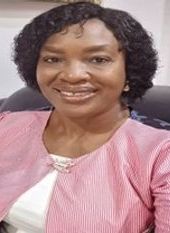
Afolake Olanbiwoninu (Ajayi Crowther University, Nigeria)
I have been involved in higher education training since 2013. My research focus is on food safety, microbial diversity of indigenous fermented foods, micronutrient bio enrichment of fermented foods and AMR in food systems. I joined the Champions Scheme to lend my voice in communicating the importance of microbiology to rural dwellers and arouse the interest of pupils both at primary and secondary level of how they can build a career in microbiology.
-
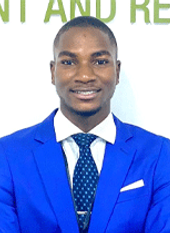
Akpan Friday (Solina Centre for International Development and Research, Nigeria)
I am an early career microbiologist building my career in public health consulting and health systems strengthening at the Solina Centre for International Development and Research. I work with a team of consultants on the GAVI Guinea Bissau Expanded Program on Immunisation Project, aiming to improve Routine Immunisation Coverage in regions within the country. Beyond health consulting, I enjoy outreach projects and I am passionate about improving microbial literacy in the general public. I joined the Champions Scheme because it connects me with other microbiologists dedicated to promoting microbiology.
-
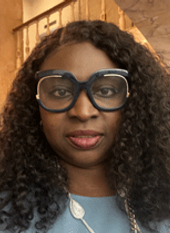
Amaka Awanye (University of Port Harcourt, Nigeria)
I am a Commonwealth Scholar and a Fellow of the West African Postgraduate College of Pharmacists. My research interest lies in infectious disease research, with a bias towards immunology and vaccinology. I have worked on many projects involving vaccine development, immunological assessment profiles and antimicrobial resistance. I am passionate about mentorship, research collaborations in microbiology and translating groundbreaking research findings into clinical medical practices to improve patient healthcare.
-
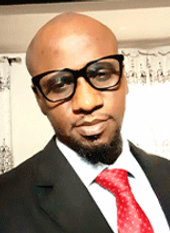
Bamidele Odumosu (University of Lagos, Nigeria)
I am a Pharmaceutical Microbiologist lecturing at the University of Lagos, Nigeria. My broad research interest involves microbial natural products and medicinal plants appropriate for innovative drug formulation, and the use of nanosized drug particles as an alternative form of chemotherapy, in treatments and prevention of infectious diseases. I am a Fellow of the World Academy of Science and a Research Fellow of INTI University Malaysia. I aim to leverage my passion for advocacy to elevate public understanding of microbiology's role in daily life.
-
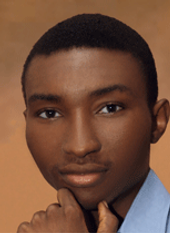
Damilola Adesuyi (One Health and Development Initiative, Nigeria)
I am an early career public health microbiologist working to address AMR and zoonosis in communities through One Health strategies. I am also passionate about microbial science advocacy and education, which spurred my interest in becoming one of the Society's Champions, to support and promote microbial sciences in Nigeria.
-
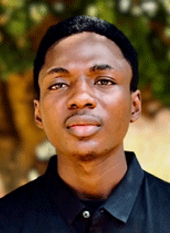
Igiku Victory Sokomba (Edo State University, Nigeria)
I am a postgraduate student at the University of Abuja, Nigeria, pursuing an MSc in Industrial Microbiology. I am dedicated to advancing food safety and security through research and collaboration. As a Society Champion, I share my passion for microbiology, exploring innovative solutions to harness the potential of microorganisms, with a focus on food safety and security. I aim to contribute to the improvement of public health and sustainable practices, driving positive impact in my community and beyond.
-
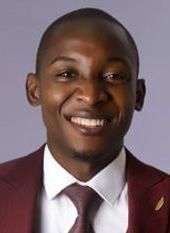
Iyiola Oladunjoye (Rouleaux Foundation, Nigeria)
I am a microbiologist dedicated to combating infectious diseases through a One Health approach and vaccine solutions, integrating human, animal and environmental health. I earned a First Class Honors degree in Microbiology from the University of Ilorin, Nigeria, in 2018 and have completed my Erasmus Mundus Joint Master's in Leading International Vaccinology Education. My work focuses on vaccine discovery. In 2023, I received the Princess Diana Award for my research and advocacy in AMR and One Health.
-
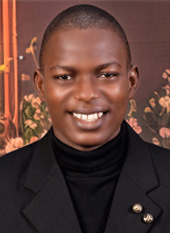
Michael Ogar (University of Abuja, Nigeria)
I am a veterinarian and early career researcher who works at the University of Abuja Veterinary Teaching Hospital, Nigeria. I diagnose and treat pets, improving the wellbeing of pets and their owners. I am particularly interested in One Health and infectious diseases, particularly zoonotic tuberculosis. I am dedicated to promoting the One Health perspective on zoonotic tuberculosis through research, and outreach efforts. I joined the Champions Scheme to connect and network with other Champions and to advocate for One Health from a microbiology lens.
-
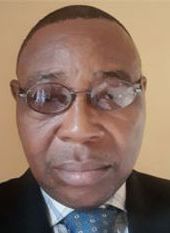
Michael Ukwuru (The Federal Polytechnic Idah, Nigeria)
I have a PhD in Food Microbiology and am the former Head of the Department of Food Science and Technology at the The Federal Polytechnic Idah, Nigeria. I am an active member of the Microbiology Society, as a member of the Building Communities Committee. I have a wide international research network and am a mentor to many early career scientists. My research areas are food microbiology, food fermentation technology, food safety and quality management systems and bioprocessing. Passionate about fostering positive change, I became a Society Champion to catalyse innovation and bridge gaps in our rapidly evolving world.
-
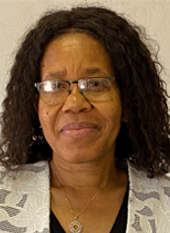
Nkechi Egbe (Nigerian Defence Academy, Nigeria)
I am a microbiologist and a molecular biologist working as a lecturer and researcher at the Nigerian Defence Academy. My research interest is in AMR and mechanisms of resistance and virulence in bacterial pathogens and pathogenic yeasts. I also study clinical and environmental samples to document AMR as well as research on new antimicrobial compounds. As an educator, I have taught science to primary and secondary schools and I have been involved in careers talks and AMR awareness talks in secondary schools. Being a Society Champion, I will leverage on my skills and experience as an educator to share my passion for microbiology and raise awareness on AMR to the public, particularly to younger people.
-
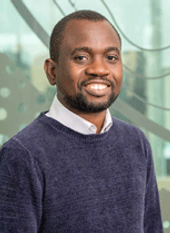
Yinka Somorin (Ajayi Crowther University, Nigeria)
I hold a PhD in Microbiology with research experience in antimicrobial resistance, food safety, and One Health. I am currently a Visiting Senior Lecturer at Ajayi Crowther University, Nigeria. I became a Society Champion to share my excitement for microbiology and have promoted microbiology through school visits, events/demonstrations at science festivals and workshops. I joined the Microbiology Society in 2013 and as co-Chair of the Nigerian Applied Microbiologists Network, I support the career development of early career microbiologists.
-
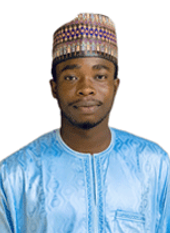
Obaje Mustapha (University of Abuja, Nigeria)
I am a graduate of microbiology from University of Abuja, Nigeria. As a Society Champion, with more focus on AMR and public health, I’m sure we can advance our understanding of microbial interactions and evolution and also develop innovative solutions for a better future and society. I’ve longed to be a part of the Microbiology Society where I can learn more and I know this Champions Scheme is the right place for me.
Sudan
-
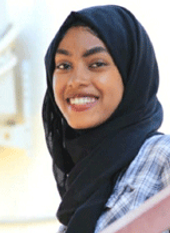
Sara Albagir Abdalla (University of Khartoum, Sudan)
I am an emerging professional in microbiology, deeply committed to education and community outreach. I have spearheaded initiatives to enhance microbiological sciences in Sudan, founding the 'Sudanese Community of Microbiologists (MicroGen)' and providing career guidance, educational content and practical training. As a Society Champion, I aim to expand my professional network, mentor emerging scientists in Africa and globally; broaden my outreach efforts and advocate for public health. My primary interests include antimicrobial resistance, microbiota and immunity, bacterial genetics and host-pathogen interactions.
ASIA
Bangladesh
-
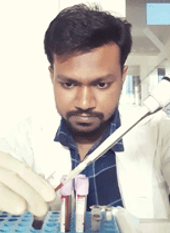
K. M. Salim Andalib (Khulna University, Bangladesh)
I am a recent graduate of Biotechnology from Khulna University, Bangladesh. My undergraduate thesis focused on how human gut bacteria and their derived metabolites act together to keep us healthy. As an RA my current research involves understanding the host-microbiome interactions. Eager to share my research findings and passion for microbiology, I am committed to promoting the incredible opportunities available within the Microbiology Society.
China
-
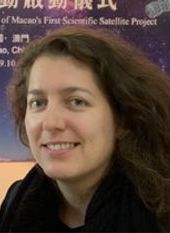
Marta Filipa Simões (Macau University of Science and Technology, Macau SAR, China)
As a microbiologist, I champion the Microbiology Society to advance research in astrobiology and astromycology. My work focuses on fungal ecology, biodiversity and development under outer-space conditions, aiming to protect planetary environments and explore fungal applications for human needs in space.
-
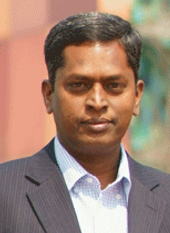
Sekar Raju (Xián Jiaotong-Liverpool University, China)
I am the Associate Dean for Learning and Teaching and a Senior Associate Professor in the School of Science at Xián Jiaotong-Liverpool University (a Sino-UK International University). I earned my PhD from the University of Madras, India, and has conducted further research in Germany, USA and the UK, in various environmental microbiology research projects. My current research focuses on microbial source tracking, antimicrobial resistance, waterborne/foodborne pathogens, environmental microbiome, microplastics and microbial biofilms. As a Microbiology Society Champion, I am keen on engaging with young and experienced researchers in microbiology and getting involved in outreach activities.
India
-
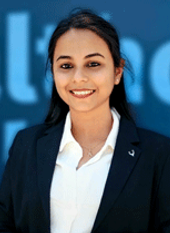
Ankita Priyadarshini (Parul University, India)
I am an Assistant Professor of Microbiology at Parul University, India, and am dedicated to advancing research at the forefront of clinical microbiology, epidemiology and disease prevention. My research focuses on microbial community characterisation in infections and sepsis, and developing targeted therapeutic interventions to combat AMR. Driven by a passion to mitigate AMR's global threat, I aim to enhance diagnostic methods and prevention strategies. As a Microbiology Society Champion, I leverage my platform to organise events, foster collaborations, and raise awareness about AMR, contributing to a healthier future through education and advocacy.
-
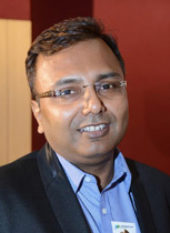
Arindam Mitra (RV University, India)
I obtained my doctorate from the University of Maryland, USA, and subsequently conducted postdoctoral research at Arizona State University, USA. My research focuses on microbial biofilms, AMR and vaccines. I organise microbiology events, as a Society Champion, to promote microbiology and the Society.
-
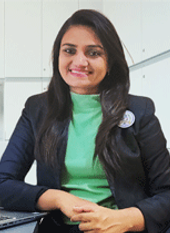
Hiral Raval (BioGeneVersity®, India)
I have a PhD in microbiology, and am the founder of BioGeneVersity®, an e-learning platform dedicated to biosciences. With a focus on antimicrobial resistance, anti-biofilm activities and plant-microbe interactions; I lead pioneering research to tackle global health threats. My expertise also encompasses anti-salmonella interventions, probiotics and microbial food research, crucial for enhancing food safety and human health. My commitment to innovation and education aims to create a healthier, more sustainable world through cutting-edge research and accessible learning opportunities in the field of microbiology.
-
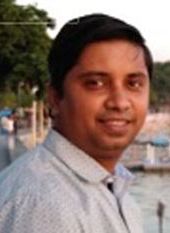
Punyasloke Bhadury (Indian Institute of Science Education and Research Kolkata, India)
I am a Professor of Biological Sciences at IISER Kolkata, India. I am trained as a microbial ecologist with an MSc from Edinburgh and PhD from Plymouth, UK. I have research interests spanning from understanding the ecological basis of microbial biocomplexity to development of antimicrobial therapeutics connecting, with surveillance of antimicrobial resistance across ecosystems.
Nepal
-
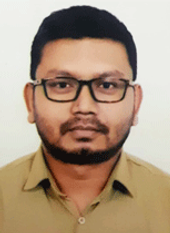
Pankaj Chaudhary (Sagarmatha Choudhary Eye Hospital, Nepal)
Namaste everyone, I am Pankaj Chaudhary, Microbiologist at National Public Health Laboratory, Nepal. I am involved in laboratory based surveillance of measles/rubella, Japanese encephalitis, rota virus, dengue virus, environmental surveillance of polio virus. Besides that, I am a Frontline FETP graduate and have been involved in outbreak investigation of diseases including mentoring FETP cohort fellows. Medical mycology is my area of interest and I would like to contribute to the advocacy of fungal diagnostics and surveillance of fungal diseases in Nepal.
Philippines
-
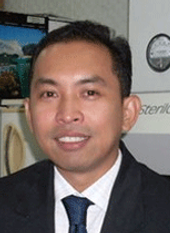
Neil Ian Lumanlan (Asian Development Bank, Philippines)
I am passionate about the applications of beneficial microorganisms in regenerative agriculture, in circular bioeconomy and international development. Since 2004, I’ve been an advocate of sustainable agricultural practices, urban composting and edible gardening. I taught undergraduate courses in microbiology and environmental science until 2019. Now freelancing, I provide consulting services on the valorisation of biomass, organic wastes and bioplastics. I joined the Microbiology Society to connect and empower people to slow down global warming and fight AMR.
Indonesia
-
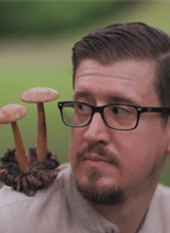
Corrado Nai (Indonesia)
I have a PhD in fungal ecology from the Free University Berlin, Germany, and MSc in Microbiology from ETH Zurich, Switzerland, and long experience working with non-profit scholarly societies. I am a science writer and award-winning science communicator who uses various media and approaches. I'm excited to be a Society Champion and to collaborate with Indonesian societies in raising awareness on fungi and microbiology.
Vietnam
-
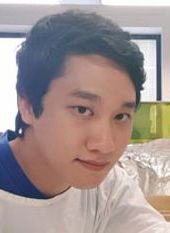
Hung Nguyen (Project G2FEEC, Vietnam)
I am an avid microbiologist. After I completed my PhD and working in oncology, I continued microbial research as a self-funded, independent researcher. Soon, I found myself mentoring dozens of (potential) researchers keen on following in my footsteps. Eventually, I had my first single-author paper published with the Microbiology Society. Ultimately, this led me to join the Champions Scheme. I hope to leverage the resources available via this Scheme to make microbial omics research more accessible to the masses.
EUROPE
Germany
-
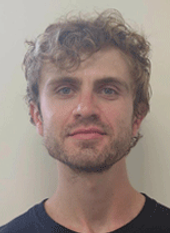
Dylan Postmus (Charité Universitätsmedizin, Germany)
I am a South African PhD student currently affiliated with the Liverpool School of Tropical Medicine, UK and Charité Universitätsmedizin Berlin, Germany. My interests are in the interface between viral pathogens and the human immune system, with a focus on studying latent HIV infection and possible cure strategies. I became a Champion to spread awareness around the Society and encourage young people to take an interest in scientific research and address the problem of global health inequity.
Iceland
-
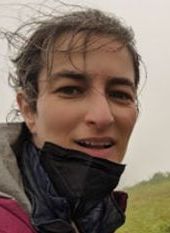
Darya Chernikhova (University of Iceland, Iceland)
I'm a Master's student at the University of Iceland, Iceland. I completed my BA in Biophysics at Columbia University in New York, USA. After a sojourn in software, I made my way back to biology to work on cryopreserving endangered microbiomes. My goal is to work towards establishing cryobanks of mixed microbial communities. We need them for uses such as providing reference samples to improve reproduceability in basic research, and acclimatising captive-bred fauna and nursery-reared flora in restoration programmes. I like talking science to anyone who doesn't run away, and I joined the Champions Scheme to connect with others who are as excited about biology as I am.
Portugal
-
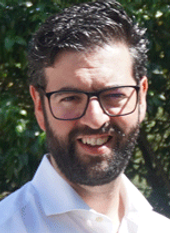
Diogo Neves Proença (University of Algarve, Portugal)
I am an Assistant Professor at University of Algarve, Portugal. The role as Society Champion will be important to promote the Society through the development of workshops and scientific events, which will increase the network between several generations of microbiology scientists, connect with other Society Champions, participate in new projects and promote career development. Environmental microbiology is my main research area, focused on the study of the microbiomes from different environments, genomics, taxonomy and biological polymers.
OCEANIA
Australia
-
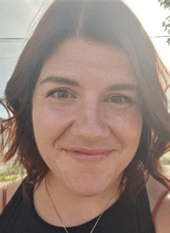
Ashley Dugan (Australian Institute of Marine Science, Australia)
My research interests are in the functional roles of bacteria in symbiosis with their hosts, and harnessing these functions in microbiome engineering approaches. I have worked in coral reef ecosystems, soil, crickets and native Australian mammals. I became a Society Champion to continue advocating for equity in science for women, members of the LGBTIQA+ community, people of colour, Indigenous scientists, minorities, people with disabilities and anyone else who has ever felt that they do not belong.
-
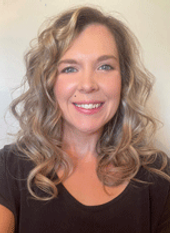
Katelyn Mroczek (La Trobe University, Australia)
I am a lecturer in microbiology at La Trobe University, Australia. As a Fellow of the Higher Education Academy, UK, I am passionate about education and teach across all undergraduate year levels. By joining as a Society Champion, I aim to forge meaningful connections, draw inspiration from fellow members and highlight the importance of microbes in our everyday lives. Through science communication and community outreach activities I strive to ignite curiosity and inspire future generations of microbiologists.
-
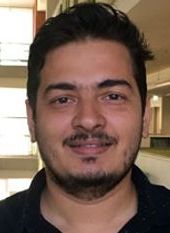
Roshan Nepal (The Commonwealth Scientific and Industrial Research Organization, Australia)
I am a postdoctoral fellow at The Commonwealth Scientific and Industrial Research Organization, Australia. I completed my PhD in prophage biology at the University of Adelaide, Australia, focusing on Staphylococcus aureus. My primary research focuses on applying phage-based strategies in the biocontrol of bacterial diseases, including those caused by antimicrobial-resistant strains. I am passionate about promoting science and opportunities to the wider community through public engagement programmes.
-
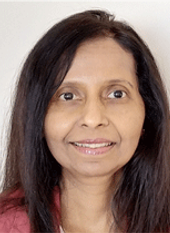
Thiru Vanniasinkam (Charles Sturt University, Australia)
I am an Associate Professor in Immunology at Charles Sturt University, Australia. I teach microbiology and immunology at undergraduate and postgraduate levels and am a Course (Program) Director at the School of Dentistry and Medical Sciences. My research interests include veterinary and medical microbiology and vaccine development. I have a keen interest in microbiology education and am a Senior Fellow of the Higher Education Academy (AdvanceHE), UK. I am involved in outreach and mentoring activities, promoting microbiology in the local community.
NORTH AMERICA
Mexico
-
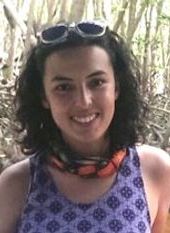
Angélica M. Jara (National Autonomous University of Mexico, Mexico)
I am a PhD student at National Autonomous University of Mexico. My project focuses on analysing the composition of microbial communities associated with the roots of plants under different conditions. I'm passionate about science communication and want to increase awareness of the importance of microbiology. Environmental microbiology and microbial genomics interest me the most and I believe that communicating about them can highlight the role that microbes play on the environment.
Canada
-
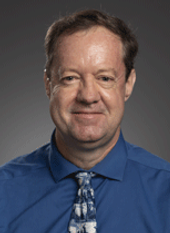
Alain Richard (Canada)
I have a PhD in Microbiology-Immunology. My 25-year career was mostly in human therapeutics. I wish to share ideas and tips in academia-industry technology transfer. I am studying archaeology in continuing education at the University of Oxford, UK. I am also interested in the history of microbiology, as well as archaeological microbiology. I want to raise awareness about the Society's activities and publications in Eastern Canada, to students and professionals in the innovation ecosystem.
-
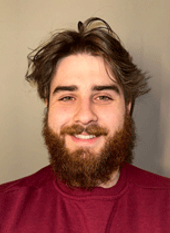
Joshua Kurucz (University of Northern British Columbia, Canada)
Working towards a Master’s degree in biochemistry at the University of Northern British Columbia, Canada, I hold an honours bachelor of science in microbiology. My research looks to extract possible bioactive therapeutics from fungi native to British Columbia, by isolating and examining several undescribed Biosynthetic Gene Clusters. I became a Champion to share my passion for fungi and spread awareness of some of their potential and potent medicinal qualities.
USA
-
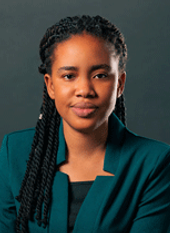
Boluwatife Esther Ajayi (Texas A&M University, USA)
I am a research assistant in the food safety microbiology lab and am pursuing a PhD in Animal Science at Texas A&M University, USA. Holding BSc and MSc degrees in microbiology, my present research is focused on the microbiology and safety of meat products. I am also interested in AMR research. I chose to be a Champion to educate the food industry and the general public on how to ensure food safety and the importance of minimising foodborne diseases, as well as provide education on AMR.
-
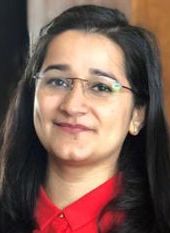
Deepali Luthra (Emory University, USA)
My expertise lies in bacteriology, host-pathogen interactions and immuno-pathology in the field of cystic fibrosis and diabetic foot ulcers, with a keen focus on clinical translation research initiatives. As a Champion, I aim to leverage this platform to foster collaborations between microbiologists across the globe and promote the scientific knowledge of the Society to future microbiologists.
-
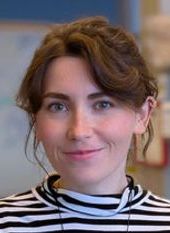
Siân Owen (New York State Department of Health, USA)
I am a Research Scientist with a focus on bacteriophage research. I have greatly benefited from Microbiology Society membership over the years, including meeting my postdoc advisor at the Annual Conference 2017! I became a Society Champion to promote the Society and enhance its visibility as a professional Society and publisher within the US microbiology community.
SOUTH AMERICA
Brazil
-
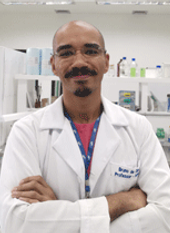
Bruno Francesco Rodrigues de Oliveira (Fluminense Federal University, Brazil)
I am an Assistant Professor of Bacteriology and Principal Investigator in the Department of Microbiology and Parasitology at the Fluminense Federal University in Niterói, Brazil. Currently, my research group focuses on marine microbiology and bacterial (pan)genomics. I hope to publicise the awesome work of the Microbiology Society in Brazil and abroad. As a Champion, I have been working towards bringing more visibility to the LGBTQ+ microbiologists' community.
Chile
-
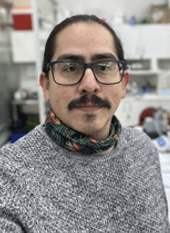
Felipe Velásquez (Universidad Mayor, Chile)
I am a biochemist with a PhD in microbiology. I started working with salmonella, then moved to viruses such as rotavirus, and completed my PhD working on HIV-1. Now, in my postdoc, I have returned to bacteria, specifically working with salmonids, aiming to reduce the use of antibiotics. I have always been passionate about scientific communication and outreach. I chose to become a Champion to share my passion for microbiology with the general public and to learn from other Champions about their interests. Additionally, I would like to encourage new scientists to understand the relevance of scientific societies and to participate in science beyond academia and research.
